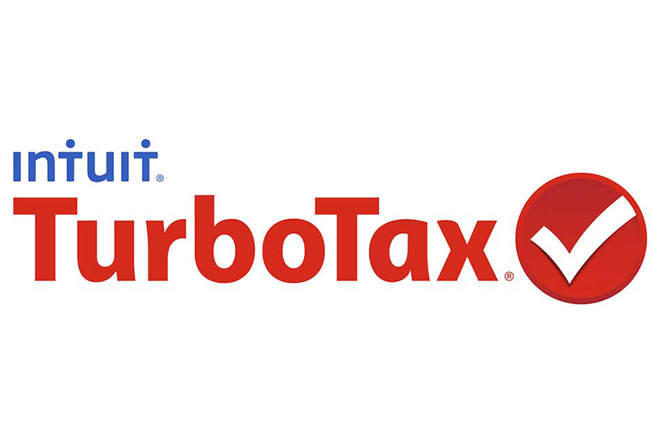It’s hard to imagine anything worse than the IRS sniffing around after your J1 experience of a lifetime.
But this is exactly what can happen if you file an inaccurate US tax return.
If you worked in the US on a J1 visa, then chances are you are legally obliged to file your US J-1 visa tax return by the 15 April 2025 deadline.
If you file your US taxes correctly, you won’t run into any trouble later on. This is important if you ever wish to return to the US on another visa or for a holiday.
Do I file as a resident or nonresident in the US?
If you go to US on a J1 visa, you’ll be considered a nonresident for tax purposes and must file as a nonresident, unless you pass the Substantial Presence Test, in which case you will be deemed a resident.
 Residents in the US can prepare and file their US taxes with the country’s biggest online tax preparation service, TurboTax . TurboTax guides US residents on their taxes and guarantees them maximum refunds.
Residents in the US can prepare and file their US taxes with the country’s biggest online tax preparation service, TurboTax . TurboTax guides US residents on their taxes and guarantees them maximum refunds.
TurboTax offers an excellent online service that helps millions of US residents prepare their taxes and claim refunds and it’s super easy to use. TurboTax is a service for US residents only, so it’s not likely to be suitable for you if you’ve been to the US on a J1 visa.
Sprintax is TurboTax’s preferred partner for nonresidents on a J1 visa. And as a J1 student you’ll typically be considered nonresident for tax purposes.
If you do use TurboTax to file your US taxes, then you’ll end up filing as a resident.
As a nonresident J1 visa holder, this means your tax return could be inaccurate and you could get into trouble later on!
Why you need to file as a nonresident in the US
As a J1 visa holder, you should NOT file as a resident.
TurboTax and any other resident tax preparation service for residents will assume you understand your residency status, so if you file with them, you may unwittingly file as a resident. And if you file inaccurately, the IRS could come knocking and you may be subject to fines and penalties.
CASE STUDY: A J1 participant, finance student Sofia from Venezuela felt the strong-arm of the IRS when she filed as a resident through TurboTax:
From May to September 2017, Sofia worked as a busser, clearing tables at The Surf Lodge in Montauk New York. A friend pointed her to TurboTax as the perfect solution for filing her taxes. Unfortunately, Sofia went ahead and filed using TurboTax despite being nonresident for tax purposes.
A few months down the line and back in Venezuela, she got a letter from the IRS asking her to confirm her identity.
Had Sofia prepared her tax return with nonresident tax partner of TurboTax, Sprintax Returns, her US taxes would have been filed without incident. She also wouldn’t have to wait to claim her tax refund.
Sofia came to us for help so we proceeded with an amendment of her US tax return, which could now take the IRS 6 months or longer to process, meaning she’ll have to wait a lot longer for any long due refunds.
So if I file an inaccurate tax return, will I get into trouble?
Claiming a refund you are not entitled to is considered tax evasion, which is a crime.
If you’re caught you may have to pay penalties and interest. You may also have trouble re-entering the US or applying for a green card.
It doesn’t matter if you do it yourself or another company does it for you, if a fraudulent tax return is filed on your behalf, it is you that will be held responsible.
And the worst part is you may not even be aware any laws were broken.
‘’Not knowing’’ isn’t considered a valid excuse by the IRS.
So one of the most important things is to ensure you file using the correct tax status and if you’re using a tax preparer, use a reputable one like Sprintax.
You could be claiming reliefs, exemptions, and credits you’re not entitled to!
If you file as a resident, then you may end up claiming certain reliefs, exemptions or credits you’re not entitled to. This could result in a bigger refund. However, as a nonresident, you won’t be entitled to many of these and must repay them to the IRS if they demand it.
This could leave you with a hefty tax bill.
If you claim them incorrectly, you’ll end up owing money to the IRS and it could affect future visa applications.

If I file an inaccurate tax return, what happens if there’s an audit?
The IRS can audit your taxes any time within a 3-year time limit after you file your US tax return. Most people find the prospect of an audit to be stressful.
So the more help you get, the better.
If you get selected for an audit and you run into issues. Sprintax.com can help you file an amendment of your US tax return. Check our 4-step guide to using our software to amend your return.
How do I avoid issues with the IRS?
The easiest way to file your nonresident taxes and stay on the right side of the IRS is to file with Sprintax.
As an authorized partner of TurboTax, Sprintax J1 tax preparation is specifically designed for nonresidents filing US taxes.
Sprintax is a self-prep service, meaning you can create an account here and prepare your federal and state tax return by answering a few simple questions online.
Here is how it works:
- You create a Sprintax account;
- Answer some simple questions
- Upload any required docs, such as your W2 form
- We prepare your fully compliant federal/state tax return(s)
- You pay an online fee of $54.95 for Federal Return or from $49.95 for a State Return (see pricing here)
- We give you instructions on where to send your tax return
- You print and send (file it) with the IRS as per our instructions
It’s also essential here that you answer each question honestly!
What’s the benefit of filing my tax return?
100% compliance is probably the most important benefit of filing an accurate tax return.
And if you’re due a refund it’s a bonus!
Due to the Tax Cuts and Jobs Act in 2017, it’s now more important than ever to file your US tax return.
As of 1 January 2018 (and up to 2025) the personal exemption was reduced from $4,050 to $0 which means that the overall taxable income has increased for all nonresidents.
So if you work in the US between 2018 and now, you must file a tax return, no matter how much you earn. And if you worked there in previous years, you should file to find out how much you could claim!
The removal of the personal exemption also means that for most nonresidents, federal tax refunds will be reduced.
The average US federal tax refund Sprintax customers get is $927 and the average state tax refund is $462 .
The changes do not impact your state refund, no matter what year you’re filing for.
To claim your state tax refund you must file your federal tax return first, before you file your state.
Bottom line?
You’re legally required to file a tax return and there’s a chance you’ll be due a tax refund.
What now?
If you worked in the US in 2024, then the deadline for filing is 15 April, 2025.
The easiest way to file is by using Sprintax.
Our tax preparation service for nonresidents will help you prepare your federal and state tax returns in minutes and guide you through the filing process.
With Sprintax you get:
- A 100% compliant US tax return
- Check for residency status
- Any applicable tax treaties to lower any tax liability or increase your refund
- Avail of personal allowances, credits & tax deductions
- Federal & state tax return preparation
- E-filing of 1040NR
- 24-hour live chat help
- Claim any tax refunds due
Thousands of nonresidents who worked in the US have already used Sprintax.
Get peace of mind and create your account here to start preparing your US tax return.
Got more questions? Check out our complete Tax Guide for J-1 Visa Holders.








